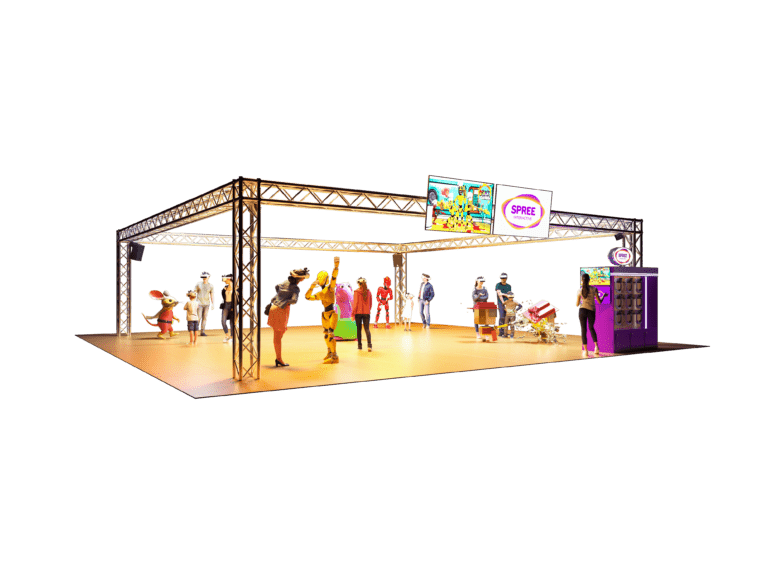How the Metaverse will only accelerate the record growth in the VR entertainment sector?

Everyone seems to be talking about the metaverse at the moment but what is it and how does it impact the entertainment industry?
According to PWC’s Global and media outlook, VR is the fastest growing segment in the entertainment market generating high levels of revenue in the coming years. The potential to personalise, monetize and incentivise VR attractions with the Metaverse only shows it has the potential to accelerate the growth in the multiplayer VR world.
What is the metaverse?
Since Facebook renamed itself to Meta, the metaverse has become a trending buzzword for all companies embracing the future. Many large companies are moving towards the implementation of the metaverse, including Nvidia, Microsoft, Gucci and more.
The metaverse is a virtual-reality space in which users can interact with a computer-generated environment and other users around the world, but this encompasses a large variety of potential environments whether that be an office environment, gaming, team building or community spaces.
The metaverse is different from other virtual environments due to it being powered by blockchain technology, which uses cryptocurrency and NFTs. This new technology allows for digital assets to be built into attractions, and then bought and traded between players at entertainment attractions. This allows Theme parks and FEC’s to monetize and incentivise return visits through unique assets.
How does this impact future attractions in the entertainment sector?
Many people are seeing the metaverse as this abstract concept that is not applicable to them, however, we have been for many years living in a world in which console players can interact and trade with each other. The console games market has already capitalised on this with the worldwide gamers spending 54 billion U.S. dollars on in-game purchases, and it is projected to grow much further. This is evidence for the demand for personalised and unique gaming experiences.
The metaverse world is not something that is going to happen in the far future, it is something that is happening all around us. For example, Holoride, an in-vehicle virtual reality entertainment system designed for passengers, has begun publicly selling its Ride cryptocurrency token to build up its ecosystem of games and experiences created by a community of developers. The Metaverse opens the potential for VR attractions to offer a gaming eco-system where you ride to play to earn, offering upgradable and exchangeable assets. This personalises attractions incentivising players to return to venues to upgrade their in-game assets, further monetizing existing popular attractions.
The metaverse has the potential to be integrated into VR attractions, boosting the already high return on investment from popular location based entertainment solutions.
Conclusion
Visitors of theme parks and FEC attractions are going to increasingly demand more personalised attractions with some form of incentive based platform. The metaverse is far more than a buzzword, we have been living in a world where it already exists but we are moving towards seeing it integrated into every aspect of our lives. VR and AR is a revenue driving industry within the entertainment industry and the monetisation possibilities of the metaverse will only accelerate this record growth.
To discover more about SPREE’s revenue driving VR entertainment solutions, please fill out this form below:
